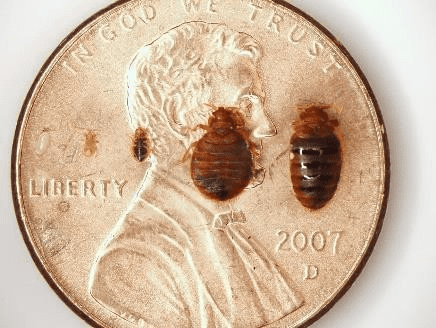Heat treatment has emerged as an effective and sustainable solution for eliminating bedbug infestations. It offers a non-chemical approach to eradicating these pests, providing relief for homeowners and hoteliers. While heat treatment is known for its efficacy, it’s essential to consider its environmental impact as well. In this blog, we will explore the environmental aspects of heat treatment for bedbugs and discuss its overall sustainability.
Reduced Chemical Usage:
One of the primary advantages of heat treatment is its minimal use of chemical insecticides. Traditional methods often rely on pesticides, which can have detrimental effects on the environment and human health. Heat treatment eliminates the need for chemical sprays, minimizing the release of potentially harmful substances into the environment. This reduction in chemical usage contributes to a healthier ecosystem.
Elimination of Pesticide Resistance:
Bedbugs have shown a remarkable ability to develop resistance to various chemical insecticides over time. Prolonged use of these chemicals can lead to the emergence of pesticide-resistant bedbug populations. Heat treatment circumvents this issue by relying on a physical rather than chemical mechanism of extermination. By subjecting the infested area to high temperatures, heat treatment eradicates bedbugs in all life stages, including eggs and nymphs, reducing the likelihood of resistance development.
Energy Consumption:
Heat treatment relies on specialized heating equipment to raise the temperature in infested areas to lethal levels for bedbugs. While this process is effective, it does require energy consumption. The use of heat-generating equipment may contribute to carbon emissions, particularly if the energy source is derived from non-renewable resources. However, compared to the prolonged use of chemical treatments, heat treatment offers a shorter treatment duration, resulting in a potentially lower overall energy consumption.
Targeted Application:
Heat treatment is a highly targeted approach that focuses exclusively on infested areas, such as bedrooms, furniture, and mattresses. Unlike chemical treatments that may involve widespread spraying, heat treatment limits the application of heat to specific locations, reducing the potential impact on non-target organisms and minimizing the overall environmental footprint.
Waste Management:
Heat treatment generates minimal waste compared to traditional chemical treatments. The process does not leave behind residue or require disposal of hazardous materials. Heat treatment is also compatible with sustainable waste management practices, as it does not contribute to the accumulation of chemical containers or the generation of toxic byproducts.
Conclusion:
Heat treatment provides a sustainable and environmentally friendly alternative for bedbug control. By reducing chemical usage, eliminating the development of pesticide resistance, and minimizing waste generation, heat treatment offers an effective solution with a lower environmental impact. While energy consumption associated with heat treatment should be taken into account, its targeted application and reduced reliance on chemical insecticides make it a preferable option for those concerned about the environment.
References:
- Feldlaufer, M. F., Koehler, P. G., & Pereira, R. M. (2016). Bed bug ecology and control. In Handbook of pest control (pp. 589-615). Mallis Handbook and Technical Training Company.
- Cooper, R., Wang, C., & Singh, N. (2015). Evaluation of a model community-wide bed bug management program in affordable housing. Pest Management Science, 71(2), 158-163.
- Gondhalekar, A. D., Romero, A., & Potter, M. F. (2016). New insights into the management of bed bugs. Journal of Integrated Pest Management, 7(1), 1-10.
- Kilpinen, O., Jensen, K. M., & Kristensen, M. (2017). Bed bug problems in Denmark, with a European perspective. Pest Management Science, 73(2), 224-229.







